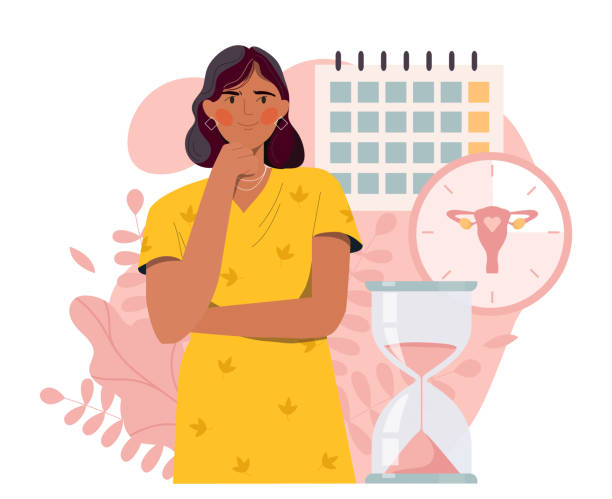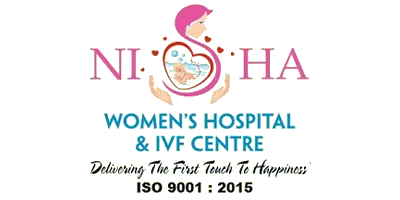Entering perimenopause at 38 can be a surprising and challenging experience. Perimenopause is the time before menopause when estrogen levels start to drop. This stage can last for several years.

During perimenopause, you might experience symptoms similar to those of menopause, such as hot flashes and irregular periods. Menopause officially begins when you have not had a period for 12 consecutive months.
Dr. Himali Maniar is a highly experienced gynecologist in South Bopal, Ahmedabad. She provides extensive insights into early perimenopause. With years of expertise in women’s health, Dr. Maniar offers valuable advice on navigating this phase smoothly. Her comprehensive knowledge makes her a trusted gynecologist in managing perimenopause effectively.
Ready to learn more about perimenopause? Discover how to manage it with professional guidance. Consult an expert gynecologist today.
Have you ever wondered if it’s too early for perimenopause?
Is 38 too early for perimenopause?

Perimenopause at 38 might seem early, but it’s more common than many realize. Perimenopause is the period leading up to menopause when hormonal fluctuations begin. For some women, these hormonal changes after menopause start in their late 30s, bringing a host of symptoms that signal the transition.
Dr. Himali Maniar explains, “While the average age for perimenopause is in the mid-40s, it’s not unusual for some women to experience it earlier. Early perimenopause can be influenced by genetics, lifestyle, and overall health.”
She emphasizes that understanding this phase can start in the late 30s allows for proactive symptom management and promotes overall well-being. Women experiencing early perimenopause can benefit from personalized guidance on lifestyle adjustments, hormone therapy, and other treatments.
Want to manage perimenopause better? Get expert advice and personalized care. Book your appointment with a professional gynecologist today.
Curious about the causes of perimenopause in your 30s?
What causes perimenopause in your 30s?

Several factors can trigger perimenopause in your 30s. Understanding these causes helps in managing the perimenopause symptoms effectively. Here are some key reasons:
- Genetics: A family history of early menopause can increase the likelihood of experiencing perimenopause in your 30s.
- Lifestyle Choices: Smoking, excessive alcohol consumption, and poor diet can accelerate hormonal changes. This leads to early perimenopause.
- Medical Conditions: Autoimmune diseases like thyroid disorders can affect hormonal balance and can lead to early perimenopause.
- Surgical Procedures: Surgeries like hysterectomy or removal of the ovaries can induce early onset of perimenopause.
- Cancer Treatments: Chemotherapy and radiation therapy can damage the ovaries and lead to early perimenopause.
- Hormonal Imbalances: Conditions that cause imbalances in estrogen and progesterone levels can trigger perimenopause symptoms.
- Environmental Factors: Exposure to toxins and pollutants may disrupt hormonal functions. This can contribute to early perimenopause.
- Stress: Chronic stress can impact the endocrine system, potentially leading to earlier hormonal changes.
Looking for ways to handle perimenopause? Consult an expert gynecologist for personalized solutions. Book your appointment today.
Read on to know the symptoms of perimenopause at 38.
What are the symptoms of perimenopause at 38?

Recognizing the symptoms of perimenopause at 38 is essential for early management. Here are some common signs:
- Irregular Periods: Changes in menstrual cycle length and flow, including missed periods or heavier/lighter bleeding.
- Hot Flashes: Sudden and intense feelings of heat, often accompanied by sweating and flushing.
- Night Sweats: Episodes of excessive sweating during sleep, leading to discomfort and disrupted rest.
- Mood Swings: Emotional instability, including irritability, anxiety, and depression.
- Sleep Disturbances: Trouble falling or staying asleep, often due to night sweats or increased anxiety.
- Fatigue: Persistent tiredness and low energy levels, even with adequate rest.
- Weight Gain: Unexplained increase in body weight, particularly around the abdomen.
- Vaginal Dryness: Reduced lubrication and elasticity, leading to discomfort during intercourse.
- Decreased Libido: Reduced interest in sexual activity and changes in sexual desire.
- Cognitive Changes: Memory lapses, difficulty concentrating, or a feeling of brain fog.
- Hair and Skin Changes: Thinning hair, dry skin, and increased appearance of wrinkles.
Wondering how to manage perimenopause effectively?
How to handle perimenopause?

Managing perimenopause effectively involves several strategies. Here are some tips:
- Healthy Diet: Maintain a balanced diet rich in fruits, vegetables, and whole grains.
- Regular Exercise: Engage in physical activities to boost overall health.
- Stress Management: Practice relaxation techniques like yoga and meditation.
- Adequate Sleep: Ensure a consistent sleep schedule and restful nights.
- Hydration: Drink plenty of water to stay hydrated.
- Hormone Therapy: Consult a healthcare provider about hormone replacement therapy.
- Supplements: Consider taking vitamins and minerals to support overall health.
- Routine Check-ups: Regular medical check-ups to monitor health.
Looking for expert care? Consult an expert gynecologist to manage perimenopause effectively. Book your appointment today.
Conclusion
Perimenopause at 38 is a significant transition that can be managed effectively with the right knowledge and support. Understanding the causes, symptoms, and strategies for handling perimenopause is crucial for maintaining health and well-being during this phase.
Dr. Himali Maniar at Nisha Women’s Hospital is an expert in women’s health. She provides invaluable insights into early perimenopause. Her compassionate care and advice make navigating this transition smoother and more manageable. By recognizing early signs and seeking timely medical advice, women can take proactive steps to ensure their health and well-being during perimenopause.
FAQs
What happens to hormones during menopause?
During menopause, estrogen and progesterone levels significantly decrease, leading to the end of menstrual cycles.
Can hot flashes start at 38?
Yes, hot flashes can start at 38 as part of early perimenopause symptoms.
What not to do during perimenopause?
During perimenopause, avoid smoking, excessive alcohol consumption, and unhealthy eating habits as they can worsen symptoms.
Can I get pregnant in perimenopause?
Yes, it is possible to get pregnant during perimenopause. During this phase, ovulation can still occur, although it may be irregular. Women should continue using contraception if they do not wish to conceive.
Reference links:
https://my.clevelandclinic.org/health/diseases/21608-perimenopause#:~:text=Perimenopause%20may%20begin%20as%20early,cycles%20are%20no%20longer%20predictable.
https://www.webmd.com/menopause/guide-perimenopause

